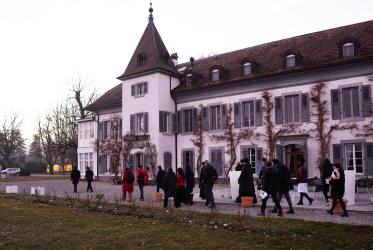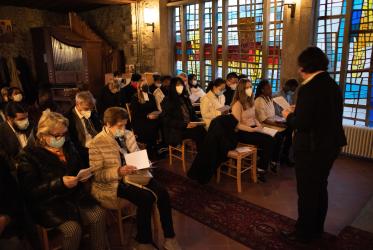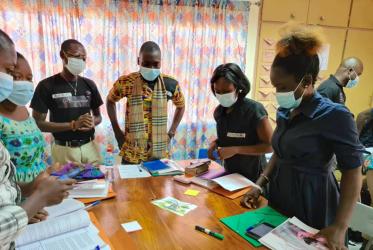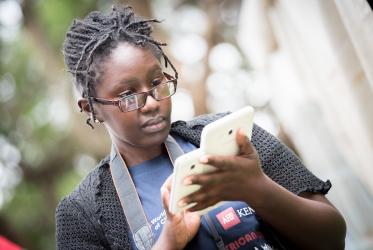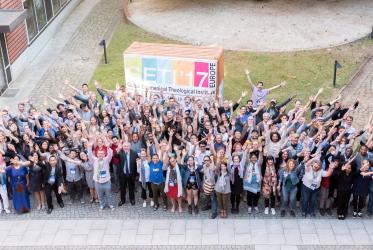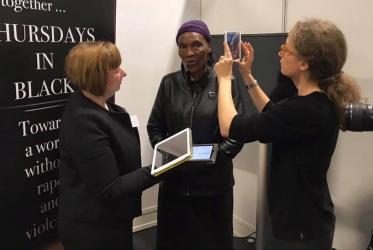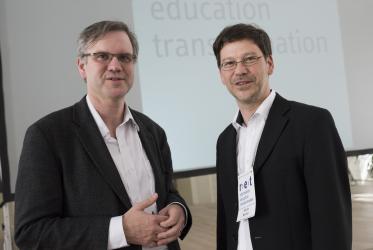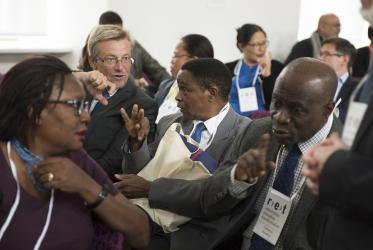Displaying 1 - 20 of 36
A Guidebook for Local Faith Communities
05 October 2023
Faith Sector Implementation of the Global AIDS Strategy
05 October 2023
Bossey student Carolina Zamorano reflects on study visit to Rome
02 February 2022
Applications open anew for Bossey online course in ecumenism
13 January 2022
Rev. Dr Hans-Ruedi Weber dies at 97
29 October 2020
WCC pays tribute to ecumenist pioneer
08 May 2019
Faith and HIV treatment go hand in hand
06 March 2019
On the journey to HIV – bridging gaps, debunking myths
21 February 2019
Paving the way for ecumenical studies, learning English in Bossey
24 September 2018
"We have our work cut out for us"
10 August 2017
“We are to pass on the mantle”
31 May 2017
WCC hosts discussion on religious radicalisation
13 December 2016


